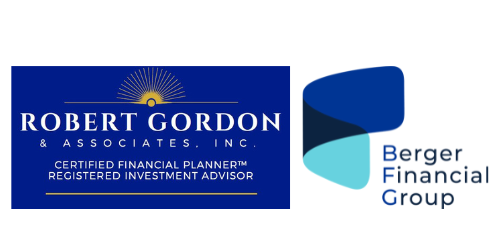Fraudsters Don't Take Holidays
Submitted by Robert Gordon & Associates, Inc on December 7th, 2017
Tips for preventing fraud
Cybercrime and fraud are serious threats and constant vigilance is key. While Robert Gordon & Associates plays an important role in helping protect your assets, you can also take action to protect yourself and help secure your information. This checklist summarizes common cyber fraud tactics, along with tips and best practices. Many suggestions may be things you’re doing now, while others may be new. We also cover actions to take if you suspect that your personal information has been compromised. If you have questions, we’re here to help.
Cyber criminals exploit our increasing reliance on technology. Methods used to compromise a victim’s identity or login credentials – such as malware, phishing, and social engineering – are increasingly sophisticated and difficult to spot. A fraudster’s goal is to obtain information to access to your account and assets or sell your information for this purpose. Fortunately, criminals often take the path of least resistance. Following best practices and applying caution when sharing information or executing transactions makes a big difference.
How we can work together to protect your information and assets
Safe practices for communicating with our firm
- Keep us informed regarding changes to your personal information.
- Expect us to call you to confirm email requests to move money, trade, or change account information.
How Schwab protects your account
Schwab takes your security seriously and leverages protocols and policies to help protect your financial assets. Below are actions you can take to reinforce their efforts and resources to assist you in keeping your account safe:
- Confirm your identity using Schwab’s voice ID service when calling the Schwab Alliance team for support.
- Use two-factor authentication, which requires you to enter a unique code each time you access your Schwab accounts.
- Review the Schwab Security Guarantee, which covers 100% of any losses in any of your Schwab accounts due to unauthorized activity.
To learn more, visit Schwab’s Client Learning Center.
What you can do
- Be aware of suspicious phone calls, emails, and texts asking you to send money or disclose personal information. If a service rep calls you, hang up and call back using a known phone number.
- Never share sensitive information or conduct business via email, as accounts are often compromised.
- Beware of phishing and malicious links. Urgent-sounding, legitimate-looking emails are intended to tempt
- you to accidentally disclose personal information or install malware.
- Don’t open links or attachments from unknown sources. Enter the web address in your browser.
- Check your email and account statements regularly for suspicious activity.
- Never enter confidential information in public areas. Assume someone is always watching.

